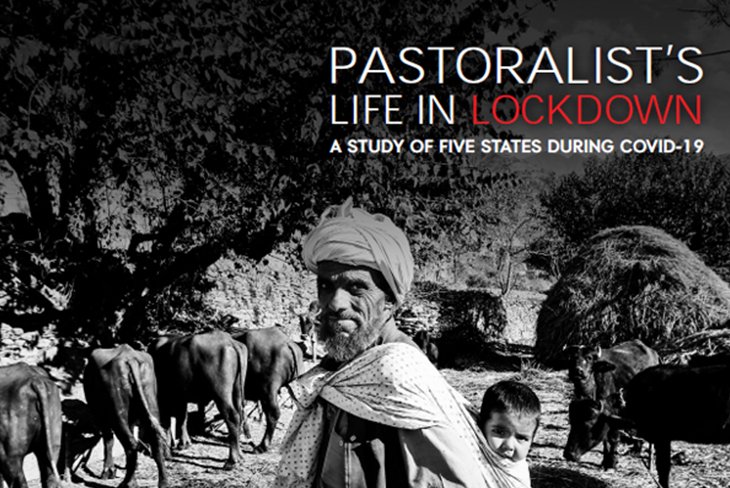India has 34 million pastoralists managing a livestock population of more than 50 million. The nationwide lockdown announced in March 2020 caused severe crises for the pastoral communities, who have been travelling across districts and states in search of grazing land. With a view to assessing the specific impact of the lockdown on pastoral communities and their livestock, we carried out a study across five states – Gujarat, Rajasthan, Himachal Pradesh, Punjab and Uttarakhand – covering 20 districts. Conducted together with Maldhari Rural Action Group (MARAG) and South Asia Pastoral Alliance (SAPA), the study covered a total of 500 respondents, including those on travel as well as sedentary from 20 pastoral communities. It was found that the lockdown hugely impacted free movement of pastoralists and their herds to get access to the pastureland, in addition to causing lack of access to markets for buying essential goods and/or selling livestock products and non-availability of healthcare facilities.
As per the study, 93% of the total respondents said they faced multiple challenges in moving with their herds during the lockdown. While 51% of the respondents shared that their inter-state movement decreased because of the lockdown, 31% said they got stuck on the way and couldn’t move. 57% of the respondents reported about diversions from their regular migration routes. An overwhelming 93% reported an increase in their expenditure on livestock rearing during lockdown. While nearly 90% of the respondents expressed there was a drop in the accessibility of grazing land and water sources for livestock, 80% experienced a dip in access to fodder. Around 89% of people also faced challenges in accessing health services for their livestock. That’s not all! Pastoralists’ own access to food items took a hit during that period; 94% of the respondents on the move could not access government supply rations. They also faced challenges in accessing health services and drinking water during migration. Pastoralists’ income through the sale of livestock products, such as milk, milk products and meat, also saw a drastic decline. Several of them also had to face instances of discrimination during travel at the hands of villagers, police and even the government officials. You can view the complete report and our recommendations here.

